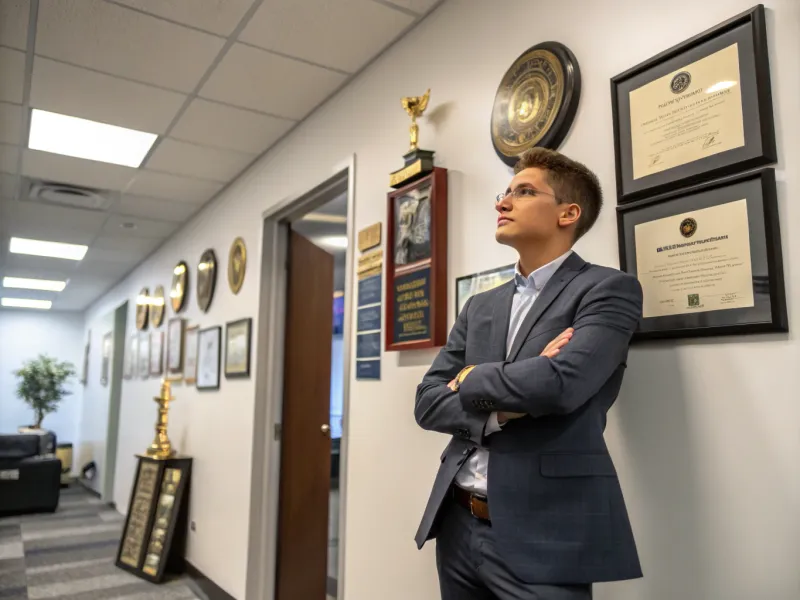25 Reasons Why People Distance Themselves From Family Once They Grow Up

Family relationships are often complex and multifaceted, reflecting an intricate web of connections that evolve as we grow older.
I frequently encounter individuals who struggle with the decision to distance themselves from family, a choice that may arise from both emotional necessity and personal growth.
Our journeys into adulthood often bring forth challenges that reshuffle our family dynamics, prompting introspection and the establishment of new boundaries. These decisions are seldom easy and can be fraught with lingering feelings of guilt or confusion.
Yet, understanding the underlying reasons can foster empathy and open pathways to healing and healthier connections.
Here are 25 distinct reasons why people might choose to create distance from their families as they mature, each shedding light on the intricate balance between personal development and familial bonds.
1. Unresolved Childhood Trauma

Life And Lessons
Childhood experiences leave lasting impressions, and unresolved trauma can significantly influence one’s relationship with family. For many, adverse events like parental neglect, abuse, or exposure to dysfunctional dynamics can cast a long shadow into adulthood. As a family therapist, I often see individuals grappling with these memories and the emotional scars they leave behind.
Revisiting these wounds can be painful, leading some to distance themselves from family to protect their emotional well-being. Moreover, when family members fail to acknowledge past wrongs, it exacerbates feelings of alienation. The lack of validation or understanding becomes a barrier, making reconciliation difficult.
However, recognizing and addressing these past traumas can be the first step toward healing. Therapy and open communication can help bridge the gap, allowing for a potential reconnection that respects boundaries and fosters mutual understanding. By creating distance, individuals may find the space needed to process their experiences and seek closure, even if it means establishing new boundaries with family.
2. Differing Values and Beliefs

Life And Lessons
As we grow, our values and beliefs often evolve, sometimes diverging from those of our family. This divergence can create tension, especially when family traditions or expectations clash with newfound perspectives. For instance, differing views on religion, politics, or lifestyle choices can lead to misunderstandings and conflicts.
When family members are unable or unwilling to accept these differences, it can become a source of frustration and emotional strain. The pressure to conform to familial norms can stifle personal growth, prompting individuals to seek distance as a means of self-preservation.
Creating space allows for the exploration of one’s identity and values without external judgment. It is an opportunity to establish a sense of self that is independent of familial expectations. Open dialogue and mutual respect for differing viewpoints can sometimes mend these rifts, but in cases where acceptance is lacking, maintaining distance may be necessary for personal well-being.
3. Pursuit of Independence

Life And Lessons
The pursuit of independence is a natural part of growing up. Leaving the family nest is symbolic of this journey, representing a step towards self-sufficiency and personal responsibility. For many, this pursuit involves creating both physical and emotional distance from family.
Independence empowers individuals to make decisions that align with their own goals and desires, free from familial influence. This separation can initially feel daunting, but it is often a critical part of personal development and self-discovery. The challenge lies in balancing the desire for independence with maintaining familial connections.
While some families support this transition, others may struggle with the change, perceiving it as a rejection. Clear communication and understanding can ease this transition, allowing for a supportive environment that respects the individual’s need for autonomy. In situations where familial ties feel suffocating, establishing distance may be vital for the pursuit of a fulfilling and independent life.
4. Toxic Family Dynamics

Life And Lessons
Toxic family dynamics can be a significant reason why individuals distance themselves from their families. Constant conflict, manipulation, and emotional abuse create an unhealthy environment that can hinder personal growth and mental well-being. Living within such dynamics often feels like walking on eggshells, where peace is tentative and contingent on appeasing others.
For those who experience these toxic patterns, distancing can be a protective measure. It provides relief from the constant stress and anxiety that accompany such relationships. It also allows individuals to create healthier boundaries, prioritize their mental health, and seek environments that foster positivity and growth.
However, acknowledging these dynamics is crucial, and sometimes professional intervention is necessary to address and change harmful patterns. Family therapy may provide a path to healing, but when change is not possible, maintaining distance becomes an act of self-care. Creating a safe space away from toxicity enables individuals to thrive without the shadow of familial dysfunction.
5. Geographical Distance

Life And Lessons
The world is vast, and as people pursue education, career opportunities, or personal adventures, geographical distance from family naturally increases. Relocating for a job, higher education, or a partner often necessitates physical separation from family, which can evolve into emotional distance over time.
While technology has made it easier to stay in touch, the lack of physical presence can alter the dynamics of family relationships. The absence of shared day-to-day experiences may lead to feelings of disconnect, as phone calls and video chats often lack the depth of face-to-face interactions.
Maintaining relationships across distances requires effort and intentionality. Regular communication, planned visits, and shared experiences can bridge the gap. However, for some, the geographical distance serves as a buffer that allows them to grow independently and explore life on their own terms. This physical space can be a catalyst for personal growth, offering the freedom to embrace new experiences without the immediate influence of family.
6. Desire for Privacy

Life And Lessons
Privacy is a fundamental need, and as individuals mature, the desire for personal space and autonomy increases. For some, family relationships may feel intrusive, with family members overstepping boundaries and encroaching on personal lives.
The need for privacy can drive individuals to establish distance, allowing them to create a space where they can cultivate their identity and develop independently. This is particularly true for those who have grown up in environments where personal boundaries were not respected.
Encouraging families to respect privacy can help maintain relationships while allowing individuals to flourish. Clear communication about boundaries and mutual respect can foster a healthy balance between connection and autonomy. When families struggle to adapt to these changes, distance might be necessary to ensure that personal space is upheld, enabling individuals to lead fulfilling lives free from undue interference.
7. Emotional Exhaustion

Life And Lessons
Family relationships can be emotionally demanding, and for some, the constant need to manage familial expectations and emotions leads to exhaustion. This emotional drain can become overwhelming, prompting individuals to distance themselves as a means of self-preservation.
Emotional exhaustion often stems from the pressures of meeting family expectations or being the one who holds everyone together. This role can be taxing, leaving little room for one’s emotional needs and personal growth.
Taking a step back can provide relief, allowing individuals to recharge and focus on their well-being. It also offers an opportunity to reassess relationships and establish healthier dynamics. Encouraging families to share emotional responsibilities and understand each other’s needs can reduce the burden. When this isn’t achievable, maintaining distance may be essential to preserve one’s mental and emotional health, ensuring that familial ties do not become a source of ongoing stress.
8. Personal Growth and Transformation

Life And Lessons
Personal growth is a lifelong journey that often necessitates change and transformation. As individuals evolve, they may find that their family relationships no longer align with their new perspectives or goals.
This misalignment can create a sense of disconnect, where family interactions feel out of sync with one’s personal journey. The pursuit of new interests, ideologies, or lifestyles may lead individuals to seek environments that nurture their transformation, away from familial influences that feel restrictive or critical.
Distance can offer the freedom to explore new paths and forge connections with like-minded individuals. It is an opportunity to redefine oneself without the constraints of familial expectations. While this separation can be challenging, it is often necessary for authentic growth. Families who embrace these changes and support personal development can maintain strong bonds. However, when acceptance is lacking, individuals may choose distance to honor their growth trajectory and continue evolving in harmony with their true selves.
9. Unfulfilled Expectations

Life And Lessons
Family expectations can be a double-edged sword, offering guidance but also creating pressure. When these expectations are unmet, feelings of disappointment and inadequacy may arise, leading individuals to distance themselves from family.
Unfulfilled expectations can stem from various sources, such as career choices, lifestyle decisions, or personal milestones. When family members hold rigid views of success or happiness, individuals may feel judged or misunderstood, prompting them to create space to pursue their own paths.
This distance allows individuals to define success on their own terms, free from external pressures. It is an opportunity to embrace individuality and make decisions that align with personal goals and values. Encouraging open communication about expectations and acknowledging each person’s unique journey can alleviate tension. Yet, in situations where understanding remains elusive, maintaining distance may be necessary to protect one’s self-esteem and sense of self-worth.
10. Past Conflicts and Resentments

Life And Lessons
Past conflicts and unresolved resentments can cast a long shadow on family relationships. Over time, these unresolved issues can create a barrier that makes reconciliation difficult, prompting individuals to distance themselves from family.
These conflicts may originate from misunderstandings, perceived injustices, or hurtful actions that were never addressed or resolved. When left unattended, they fester and grow, affecting interactions and emotional connections.
Distance can provide a reprieve, offering individuals the space to process their feelings and gain perspective. However, true healing often requires confronting these past conflicts and seeking resolution. Families that prioritize open communication and forgiveness can mend these rifts and rebuild stronger connections. In cases where resolution seems unattainable, maintaining distance may be essential to avoid further hurt and preserve one’s peace.
11. Generational Differences

Life And Lessons
Generational differences can be a source of friction in family relationships, leading to misunderstandings and distance. As societal norms and values shift over time, the gap between generations can widen, creating challenges in communication and understanding.
Differences in technology use, cultural references, or lifestyle choices can make interactions feel foreign or strained. Older generations may struggle to relate to the experiences of younger family members, while younger individuals may feel misunderstood or dismissed.
Recognizing and respecting these differences can bridge the gap, fostering empathy and appreciation for diverse perspectives. Families that embrace change and adapt to evolving societal norms can maintain strong bonds. However, when generational divides become insurmountable, distance may be necessary to preserve relationships and prevent conflicts. Establishing boundaries and finding common ground can create a harmonious balance between respecting traditions and embracing change.
12. Lack of Emotional Support

Life And Lessons
Emotional support is a cornerstone of healthy relationships, and its absence can lead to significant distance in family ties. When individuals feel unsupported or dismissed by their family, it can create a sense of isolation and emotional disconnect.
This lack of support may manifest in various ways, such as dismissing one’s feelings, failing to acknowledge achievements, or not providing encouragement during challenging times. Over time, this emotional void can become a barrier, prompting individuals to seek support elsewhere.
Distance can offer a reprieve from the disappointment of unmet needs, allowing individuals to find communities and relationships that provide the validation and support they crave. While fostering open dialogue about emotional needs can heal these rifts, in cases where families remain unresponsive, maintaining distance may be necessary to protect one’s emotional well-being and pursue fulfilling connections that offer genuine support and understanding.
13. Overbearing Family Dynamics

Life And Lessons
Overbearing family dynamics can stifle individuality and hinder personal growth, leading individuals to distance themselves to reclaim autonomy. Families that exert excessive control or influence over decisions and life choices can create a stifling environment.
These dynamics may manifest through unsolicited advice, constant check-ins, or a lack of respect for personal boundaries. Such behaviors can feel suffocating, leaving little room for self-expression and individuality.
Establishing distance can be a necessary step in asserting independence and fostering personal development. It provides the space to explore life on one’s own terms and make decisions that resonate with personal values and goals. Encouraging families to respect autonomy and support individual choices can maintain strong connections without compromising personal freedom. When overbearing behaviors persist, however, distance may be essential to cultivate a life that honors one’s true self.
14. Emotional Maturity and Growth

Life And Lessons
Emotional maturity and growth can lead to shifts in family relationships, as individuals develop a deeper understanding of their needs and boundaries. This maturation often prompts the reevaluation of familial connections, leading to necessary distance.
As people grow, they may recognize patterns or behaviors within family dynamics that no longer serve their well-being. This awareness can drive the desire to establish healthier boundaries and seek relationships that align with their evolved emotional landscape.
Distance can facilitate this growth, providing the freedom to cultivate emotional intelligence and resilience. It allows individuals to engage with family on their own terms, ensuring that interactions are nurturing and respectful. Encouraging families to support this journey by embracing change and promoting open communication can enhance relationships. When this support is lacking, maintaining distance may be pivotal for continued emotional growth and self-discovery.
15. Unhealthy Dependency

Life And Lessons
Unhealthy dependency in family relationships can hinder personal growth and independence, prompting individuals to distance themselves to break free from enmeshment. This dependency may manifest as emotional reliance, financial support, or decision-making control.
Such dynamics can create a cycle where individuals feel unable to make autonomous choices or pursue their interests without familial input. The pressure to conform to family expectations can stifle individuality and personal development.
Distance can break this cycle, empowering individuals to establish their identity and make decisions that align with their values and aspirations. It offers the space to cultivate self-reliance and self-confidence. Encouraging families to support independence and celebrate autonomy can maintain healthy relationships. However, when dependency remains entrenched, maintaining distance may be necessary to foster personal growth and create a fulfilling life independent of familial constraints.
16. Fear of Judgment

Life And Lessons
Fear of judgment is a common reason why individuals distance themselves from family. When family members criticize or judge life choices, it can create a barrier that impedes open communication and connection.
This fear may arise from past experiences where individuals felt scrutinized or belittled for their decisions, such as career paths, relationships, or lifestyle choices. The anticipation of judgment can lead to anxiety, prompting individuals to avoid interactions that feel critical or unsupportive.
Distance can provide relief from this fear, allowing individuals to build confidence and self-assurance without external pressure. It is an opportunity to engage with family on one’s own terms, fostering relationships that respect individuality and celebrate diversity. Encouraging open communication and acceptance of differences can mitigate judgment and strengthen familial bonds. In cases where judgment persists, maintaining distance may be necessary to preserve self-esteem and ensure that familial ties do not become a source of ongoing stress and insecurity.
17. Seeking New Identities

Life And Lessons
The pursuit of new identities and experiences can lead individuals to distance themselves from family, as they explore paths that diverge from familial norms. This journey often involves redefining oneself and embracing diverse perspectives and lifestyles.
Engaging with new environments and communities can provide a sense of belonging and validation that may be lacking in familial settings. It allows individuals to explore interests and identities that resonate with their authentic selves.
Distance can facilitate this exploration, offering the freedom to immerse in new cultures and experiences without familial influence. It is a chance to craft a life that reflects personal values and aspirations. Families that embrace change and support self-discovery can maintain strong connections. However, when acceptance is limited, individuals may find that maintaining distance is necessary to honor their journey and continue evolving in harmony with their true selves.
18. Desire for Adventure and Exploration

Life And Lessons
The desire for adventure and exploration can lead individuals to distance themselves from family as they seek new horizons and experiences. This pursuit of discovery often involves leaving the familiar comforts of home to embrace the unknown.
Traveling to distant places or embarking on new endeavors can be exhilarating, offering opportunities for personal growth and self-discovery. The thrill of exploration fosters resilience and adaptability, traits that enrich one’s life journey.
Distance can facilitate this adventure, providing the space to explore without familial constraints. It is an opportunity to challenge oneself and build a life that is vibrant and fulfilling. Families that support this spirit of adventure can maintain strong connections, celebrating each other’s growth and achievements. However, when familial expectations feel limiting, individuals may choose distance to fully embrace their adventurous spirit and create a life that resonates with their passions and dreams.
19. Avoiding Family Drama

Life And Lessons
Family drama can be a significant source of stress and emotional turmoil, prompting individuals to distance themselves to preserve their peace of mind. Constant conflicts, gossip, and interpersonal tensions create an environment that feels unstable and draining.
For those who find themselves entangled in family drama, distance can provide a much-needed reprieve. It allows individuals to detach from the chaos and focus on their well-being without being pulled into unnecessary conflicts.
Creating space can also offer perspective, enabling individuals to engage with family from a place of calm and clarity. Encouraging open communication and setting boundaries can help mitigate drama and foster healthier interactions. In situations where drama remains pervasive, maintaining distance may be essential to protect one’s mental and emotional health and ensure that family relationships do not become a source of ongoing stress and discord.
20. Cultural and Generational Expectations

Life And Lessons
Cultural and generational expectations can create tension in family relationships, leading individuals to distance themselves to pursue their paths. These expectations often encompass norms related to career choices, marriage, and lifestyle, reflecting values that may not align with individual aspirations.
For many, balancing personal desires with familial and cultural expectations can be challenging, creating feelings of restriction or alienation. When family members hold rigid views, it can stifle individuality and personal growth.
Distance can offer the freedom to explore life on one’s own terms, allowing individuals to honor their values and pursue their dreams. It is an opportunity to reconcile cultural heritage with personal aspirations, crafting an identity that resonates authentically. Families that embrace change and support diverse paths can maintain strong connections, celebrating the richness of varied experiences. However, when acceptance is lacking, individuals may choose distance to honor their journey and continue evolving in harmony with their true selves.
21. Desire for Stability

Life And Lessons
The desire for stability can drive individuals to distance themselves from family, especially when familial dynamics are marked by unpredictability or chaos. Stability offers a sense of security and peace, which may be lacking in tumultuous family environments.
For those who seek stability, distancing can provide the opportunity to create a life that reflects their aspirations for calm and predictability. It allows individuals to establish environments that nurture their well-being and foster growth.
Distance can also enable individuals to set boundaries and create healthier dynamics with family. Encouraging families to support stability and respect individual needs can enhance relationships. However, when familial environments remain unstable, maintaining distance may be necessary to cultivate a fulfilling and balanced life, free from the disruptions of chaotic family dynamics.
22. Striving for Personal Achievement

Life And Lessons
Striving for personal achievement and career success can lead individuals to distance themselves from family, as they focus on their professional goals and aspirations. This pursuit often requires dedication, time, and energy, which may necessitate a shift in priorities.
The drive for success can create a sense of disconnect from family, especially if familial expectations do not align with personal ambitions. Balancing work commitments with family interactions can be challenging, prompting individuals to prioritize career advancement.
Distance can offer the space to pursue achievements without compromising personal goals. It is an opportunity to explore potential and build a life that reflects one’s aspirations. Families that support ambition and celebrate accomplishments can maintain strong connections, fostering an environment of encouragement and pride. When understanding is lacking, however, individuals may choose distance to focus on their career paths and achieve the success they envision.
23. Reevaluation of Relationships

Life And Lessons
Reevaluating relationships is a natural part of personal growth, leading individuals to distance themselves from family as they assess the quality and dynamics of their connections. This introspection often involves determining which relationships enhance well-being and which may hinder personal development.
As people mature, they gain clarity about their needs and boundaries, prompting a reassessment of familial ties. This process can reveal patterns or behaviors that no longer serve one’s well-being, leading to the decision to create distance.
Distance can provide the space to cultivate relationships that are nurturing and supportive, allowing for personal growth and fulfillment. It is an opportunity to engage with family on one’s own terms, ensuring that interactions are meaningful and enriching. Encouraging families to embrace change and support evolving needs can enhance connections. When this support is lacking, maintaining distance may be necessary to honor one’s journey and continue evolving in harmony with their true self.
24. Career Priorities

Life And Lessons
In today’s fast-paced world, career often takes center stage, pulling individuals away from family. The demands of building a successful career can lead to long hours and relentless focus on professional goals. Balancing work and family becomes a challenging act.
For many, geographical relocation for job opportunities adds to the distance. The necessity to move where jobs are plentiful can lead to infrequent family visits. These career-driven choices can inadvertently create emotional and physical gaps.
It is crucial to find time for family amidst career pursuits. Scheduling regular calls or visits helps bridge the distance, ensuring family ties remain strong despite busy professional
25. Pursuit of Personal Freedom

Life And Lessons
The desire for personal freedom often leads individuals to distance themselves from family. The quest to explore the world on one’s own terms can be both liberating and distancing. Pursuing new experiences fosters independence.
For some, family can feel limiting, and the need to break free becomes essential. This pursuit is often about finding one’s identity outside familial expectations.
